
Albert Serra
Albert Serra was born in 1975 in Banyoles, Girona, Catalonia, Spain. He is a director and writer, known for La mort de Louis XIV (2016), Honor de cavalleria (2006) and Histoire de ma mort (2013).
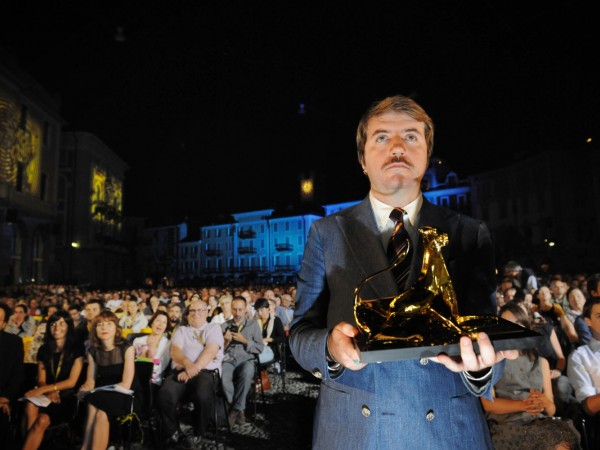
I also made a film that was a letter to Lisandro Alonso, El Senyor ha fet en mi meravelles (2011). I Show more
I also made a film that was a letter to Lisandro Alonso, El Senyor ha fet en mi meravelles (2011). It's a film that I am very proud of, that is very interesting, and that will last forever, I think. For all the people interested in my cinema this will be my most moving film because it talks about my way of working and also about friendship, and about the possibility of building up a collective way of working - not a collective, but the possibility of creating a group, the mechanics of a group that is in some sense an innocent group, the idea of making films with innocent people, and how it ends, its disintegration. It's a very interesting movie, and in time I think it will gain more recognition. [2013] Hide
[on the cinematography of Histoire de ma mort (2013)] It's complicated, because at the beginning we Show more
[on the cinematography of Histoire de ma mort (2013)] It's complicated, because at the beginning we were shooting with the [Arri] Alexa, which I didn't like, then we changed to another one, and then another...Nobody has invented a camera that suits my purposes, that is mobile, that can shoot well in the dark, that can be close to the actors, that can record hours of improvisation without needing to stop to change cards...We were in Romania, in the middle of nowhere, we had two Alexas, two Sonys, two Panasonics. The producer in Romania said that even Ridley Scott never had 12 cameras on the set. In the end we used the same Panasonic camera that we used on Honor de cavalleria (2006), which is not pure HD. It was a little bit of a mess, but I like to create a mess, because what counts is inspiration, not technical things. Technical things are boring.[2013] Hide
[on the aspect ratio of Histoire de ma mort (2013)] The cameramen shot the film for 4:3, and in the Show more
[on the aspect ratio of Histoire de ma mort (2013)] The cameramen shot the film for 4:3, and in the middle of the shooting I realized it was better in 2.35. But I didn't tell them. So they composed the whole film for 4:3, which is exactly the opposite of 2.35. But then you get an image that is very strange, sometimes, because there is a lot of empty space, an absurd composition, because in editing I had to choose the upper part or the lower part, and this creates a completely new compositional style. So I think my main contribution was simply that, not telling the cinematographer during the shooting. But I'm rarely focused on the composition of the shot, because I'm shooting with two or three cameras, depending on the scene, on the place, and I give the cinematographers a lot of freedom. I check the frame very rarely, only in a few cases. Here the idea was brilliant...it's new. It never looks like it was composed because it was not composed! It was composed for 4:3, and it's absolutely the opposite of 2.35. But it shares something with the way I work, which is based on the rejection of communication, even with actors. I know what I want - perhaps I don't even know - but I don't communicate this with actors or with technicians. I never say what they have to do. It's a rule that I discovered was better from the very beginning - you know, like Andy Warhol, don't judge your own work, don't judge what you're doing. But I do this in an even more radical way. I openly reject communication with people.[2013] Hide
[on writing Histoire de ma mort (2013)] I was in Romania showing Honor de cavalleria (2006), and the Show more
[on writing Histoire de ma mort (2013)] I was in Romania showing Honor de cavalleria (2006), and there was a Romanian producer [Daniel Burlac] who told me that I should do the same thing with Dracula as I did with Don Quixote. At the beginning I didn't like the idea because I'd never seen any fantastic films, or almost any, I hate them - eventually I watched some to prepare for this film. This suggestion was like a joke to me, but slowly it built up in my mind, and eventually I thought it would be a challenge, a beautiful challenge. But obviously I couldn't follow the whole Dracula mythology, nor could I only make a film about Dracula. So I decided to mix it with some imaginary that is closer to my universe, that is closer to my imagination, and this was Casanova. At the same time I was reading Casanova's memoirs, "Story of My Life", and I realized that Casanova and Dracula share some themes, some thoughts about desire, perhaps pleasure, about the night, so I said, why not, we will have this typical 18th-century atmosphere, the light, the mundane...the rationalism, this open-minded desire of communication of everything, which you see with Casanova talking all throughout the film about Europe, women, food: possessing this desire of really being in contact with the world and trying to place rational thought on it. And it could be interesting to merge this with the other side of the coin, the beginning of Romanticism at the start of the 19th century, which is exactly the opposite, because in Romanticism there is no communication with the world. Dracula is closed in his metaphysical thinking, and is violent, not rationalistic, with a more sexual, not sensual, way of being. I thought this could be a beautiful question for the film: Where is the real pleasure, or where is the real desire? Where do the characters find the actual satisfaction for their desire? In the mundane side, in the light side of Casanova, or in the more dark side of Dracula? And in the end it looks like Dracula wins, and people feel more pleasure in the pain, or in the guilty things, and perhaps the film is ultimately about the dark side of our lives. I wanted to make a film about the night, and what happens in the night, when real desires appear.[2013] Hide
I shot Honor de cavalleria (2006) in 10 days, and Le chant des oiseaux (2008) in 16 days, so I am fa Show more
I shot Honor de cavalleria (2006) in 10 days, and Le chant des oiseaux (2008) in 16 days, so I am fast. And I always start at 10am, rather than this myth of starting to shoot at 6 or 7am. Our timetable starts at 10. Everyone wakes up at 8:30 or 9, has breakfast, and then we start at 10. This is also our playful side. We are not there to work, we are on holidays, taking time off from our daily life. It should be subversive. So now I can afford to put in more crazy scenes, and I would love to do more of them in my future work. [2013] Hide
[on his work and criticism] The films are so radical and special in themselves that there are no wea Show more
[on his work and criticism] The films are so radical and special in themselves that there are no weak points: they are impossible to criticize. There are no mistakes inside, you simply cannot find bad things in the film. It's not exactly that they're flawless, what's important is the concept, that it's unfuckable...it's the whole thing that's good or bad. To put it in more extreme terms, it's excellent or horrible. You cannot think about my cinema in subtle terms. And I always think that my films, and some other films, are unfuckable because they are beyond criticism.[2013] Hide
[on the aspect ratio of Histoire de ma mort (2013)] So, in the middle of the shooting we checked for Show more
[on the aspect ratio of Histoire de ma mort (2013)] So, in the middle of the shooting we checked for the texture of the camera problems and I said "I don't like this 4:3." It was the same time Miguel Gomes was shooting Tabou (2012) in 4:3, and there was another film shot in 4:3, so I said "Fuck! I hate this," for this and technical reasons. And by chance a friend of mine was working with the computer and put on the CinemaScope frame, and "Oooh, I like it!" We didn't say anything to the cinematographer, who kept composing the film in 4:3. Then at the end, when the film was edited and finished, one or two hours before sending the film to the lab - because it was transferred to 35mm - we re-composed all the shots. It's interesting. If you transform 4:3 to 1.66:1 essentially you have the same image. You can improve a little bit or maybe destroy a little bit. But [reframing] from 4:3 to CinemaScope, you lose 40 per cent of the image. It's a new image, a new concept of what was shot. It's against, against. You can do it in a hard way. You can cut 40 per cent of the image. Or in the mix in the sound; I really work hard on the sound. [2015] Hide
Jean-Luc Godard's latest film, Adieu au langage (2014), was done with three people. This is my ideal Show more
Jean-Luc Godard's latest film, Adieu au langage (2014), was done with three people. This is my ideal. But I also like chaos. I like to put useless people in the crew, who create problems for the others. A friend of mine has a Harley Davidson motorcycle, and we were talking about it, and he said "It is the best motorcycle in the world." And I said, "Well yeah, but it's boring. It never breaks down." The essence of riding by motorcycle, rather than by car, is its unpredictability. It's more about the travelling itself than the place you arrive. So I would not love to make films with just a few people, because these useless people are valuable, they create chaos and problems. [2013] Hide
[on the transition of La mort de Louis XIV (2016) from a planned museum performance to a feature fil Show more
[on the transition of La mort de Louis XIV (2016) from a planned museum performance to a feature film] The original project already had Jean-Pierre Léaud in it. He had to perform the death of Louis XIV over the course of 15 days. Visitors could see him perform and the idea was to film the whole thing. When the project fell through, the story stayed with me and we still had some budget left, so four years later I took it in hand again with the same idea at the core: the death of Louis XIV in a single location, mainly his bedroom, and condensing the 15-day span to an hour and a half in a conventional fictional narrative. We have tried to be accurate both in the screenplay and the production design, in which I got involved myself. I'm also very happy about the cinematography [by Jonathan Ricquebourg]. A lot of people have mentioned Rembrandt as a reference but the truth is that was not on my mind despite the fact that I'm more influenced in my work by art than I am by film history. More than Hitchcock, I grew up loving avant-garde artists. [2016] Hide
[on La mort de Louis XIV (2016)] The idea of absolute power combined with a state of total physical Show more
[on La mort de Louis XIV (2016)] The idea of absolute power combined with a state of total physical helplessness was very attractive. It's also a kind of little revenge that we artists can take in front of the powerful: To show them that, facing death, we are all the same. I also wanted to escape the cliché that a palace runs like clockwork. He calls for water and they take forever to tend to him, for example. It was his sunset but that of the system surrounding him as well. [2016] Hide
[on Histoire de ma mort (2013) and actors] This film was created in the same spirit as my other film Show more
[on Histoire de ma mort (2013) and actors] This film was created in the same spirit as my other films, but I'm trying to add new things each time. I use non-professional actors, and always will, as I hate professional actors. I like to put some absurdity inside the films, because I think it's funny, and I also like improvisation, because it creates problems in the shooting. [2013] Hide
I always say what really changed my life was art. Writers - Marcel Proust, Miguel de Cervantes y Saa Show more
I always say what really changed my life was art. Writers - Marcel Proust, Miguel de Cervantes y Saavedra - real writers; real filmmakers - Andy Warhol; maybe Salvador Dalí. These people changed my life and made me take decisions in my real life to become the person I am now. I think this is very important. I'd like to believe that art is an improvement of our lives. It was an idea I had a few months ago: What do you think is better for the world, that in all the cinemas there is a Jean-Marie Straub film, or a Steven Spielberg film? What do you think would create more goodness for humanity? Straub film in all the cinemas, for sure, we all agree! I discovered in the end that what I do or what certain filmmakers do is important for the goodness of humanity. [2015] Hide
[on the dialogue editing of Histoire de ma mort (2013)] It's very interesting because sometimes in t Show more
[on the dialogue editing of Histoire de ma mort (2013)] It's very interesting because sometimes in the edit the conversations are completely created out of nothing. For the first scene where Carmen talks with Dracula by the river in the day, I had two hours of mostly improvised dialogue, with different answers, different questions, and in the edit I put one question with another answer. But during all the shooting the answers were not for the specific questions, say 60 to 80 percent of time. They said the sentences in the course of the shooting, but not in that order. So they are beautiful dialogues because they are very natural, quotidian, and spontaneous, but they are more original than that because it was not "written," nobody thought that the dialogue would end up in that way...it was done in the edit.[2013] Hide
[on Histoire de ma mort (2013)] I make radical films that are long, often very dark, and without any Show more
[on Histoire de ma mort (2013)] I make radical films that are long, often very dark, and without any professional actors, so getting financing for my films is tough. I have none of the attributes they are looking for. If you just add two or three big name actors to the production, or make the film a bit shorter, or add a bit more narrative, everything becomes much easier. So it was a long process for me to get money for the film, even though it's not an expensive film: The budget was about 1.3 million euros. [2013] Hide
I don't appreciate actors. Even non-professional actors. They should pay to be in the film. Imagine Show more
I don't appreciate actors. Even non-professional actors. They should pay to be in the film. Imagine that they get money to do this! It would be like if I got money to get drunk. It would be like if I went to a nice bar and ordered a bottle of expensive French champagne, and then they paid me 200 euros. What kind of world is this? [2013] Hide
[on Histoire de ma mort (2013)] This playful side was a major part of Surrealism, Dadaism, Futurism. Show more
[on Histoire de ma mort (2013)] This playful side was a major part of Surrealism, Dadaism, Futurism. Nowadays, everybody thinks they are a great artist, and they are scared of including something that could go against the film's critical acclaim. But I like that. For me, a film should always be risky. And in this film I think I have achieved some really risky things. I knew from the beginning, just because of the mix of the two characters of Casanova and Dracula, that the line between the sublime and the grotesque would be very thin. But I think at the end I have produced something interesting. My films will never be perfect because it's not possible: the energy that allows me to make things that nobody else can make is precisely what prevents me from making a perfect film. They're the two sides of the same coin, you can't have everything. [2013] Hide
Andy Warhol was a great influence; what Chelsea Girls (1966) is about is manipulation - but in the g Show more
Andy Warhol was a great influence; what Chelsea Girls (1966) is about is manipulation - but in the good sense. Okay, everybody hated Warhol because he was the manipulator and was the only one rich at the end and all the other were poor. At the same time, you feel, with "Chelsea Girls" for example, it's like looking at life in the people around, looking at life. The most passive, most quiet and calm guy is really glowing with life instead. Life, more life, means more passion, more action. The essence of what we're doing here in the world. But the details and subtleties always arrive in the shooting. Details, for me, have to grow up like a small flower. You cultivate a big field and there are small flowers that appeal spontaneously. [2015] Hide
Albert Serra's FILMOGRAPHY
as Director (1)
as Creator (1)














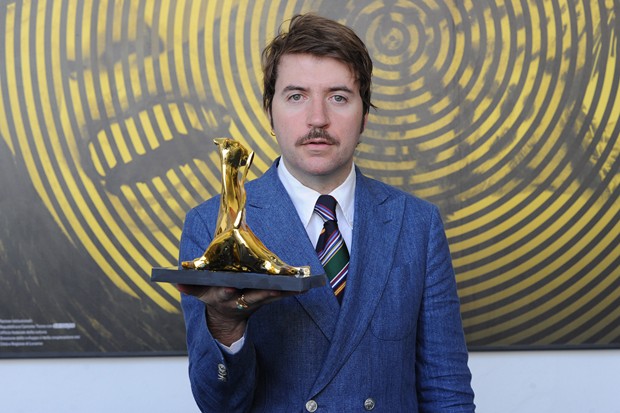
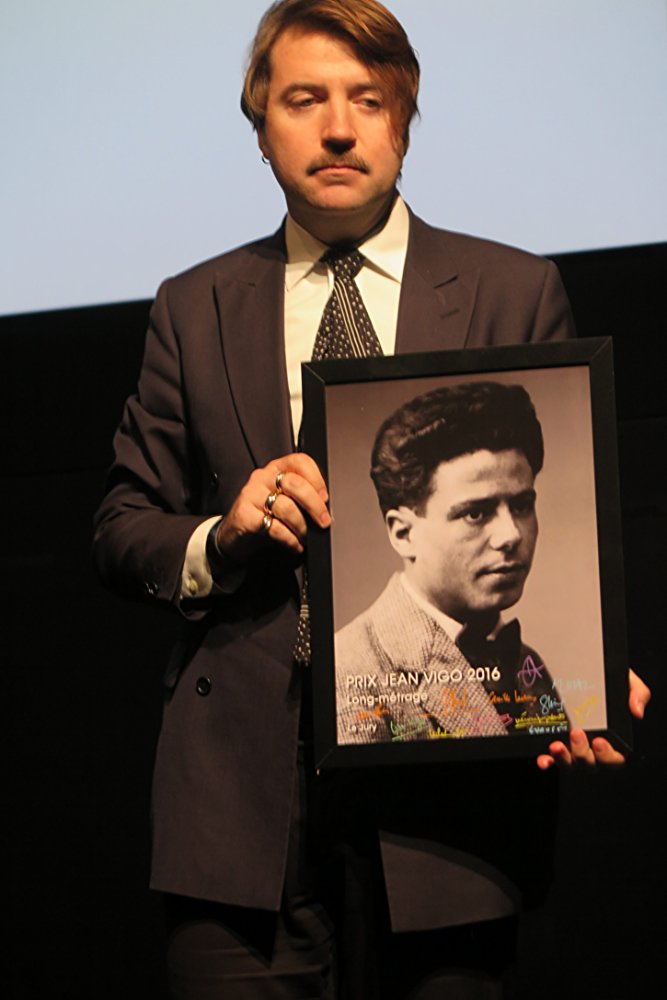
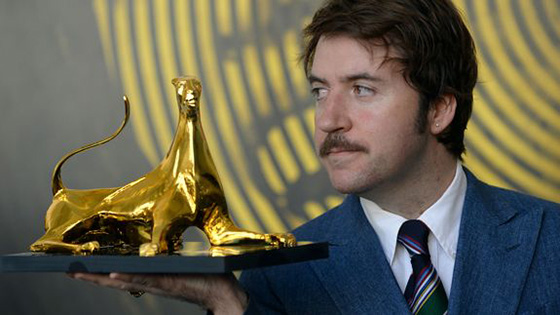
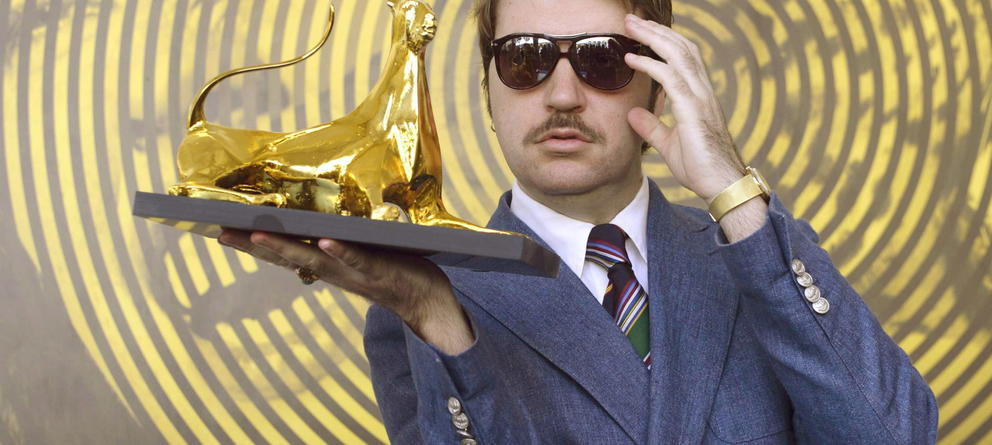
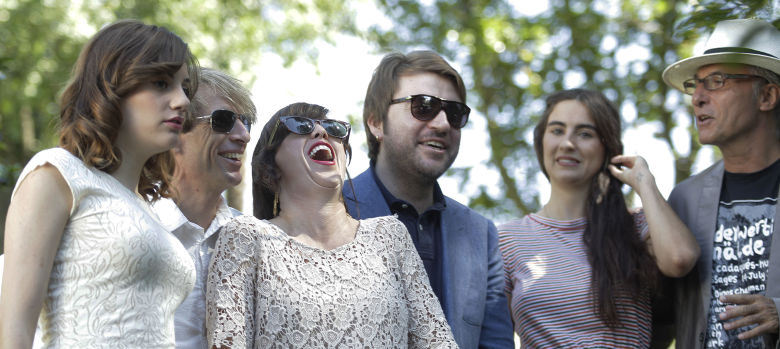
![The Death Of Louis XIV (La mort de Louis XIV) [Sub: Eng]](https://static.gomovies.bid/img/movies/Uo-Vf1CxAYFbqVkPsHkOuxVIEEu1i-PZ7Ecwa8aT5nFgKr1D4jUeWpm2oT1x7YW772FnOzUQ_vQha5F7VdyxKn8M3ZTO38njYR1iwVhSz2I.jpg)
